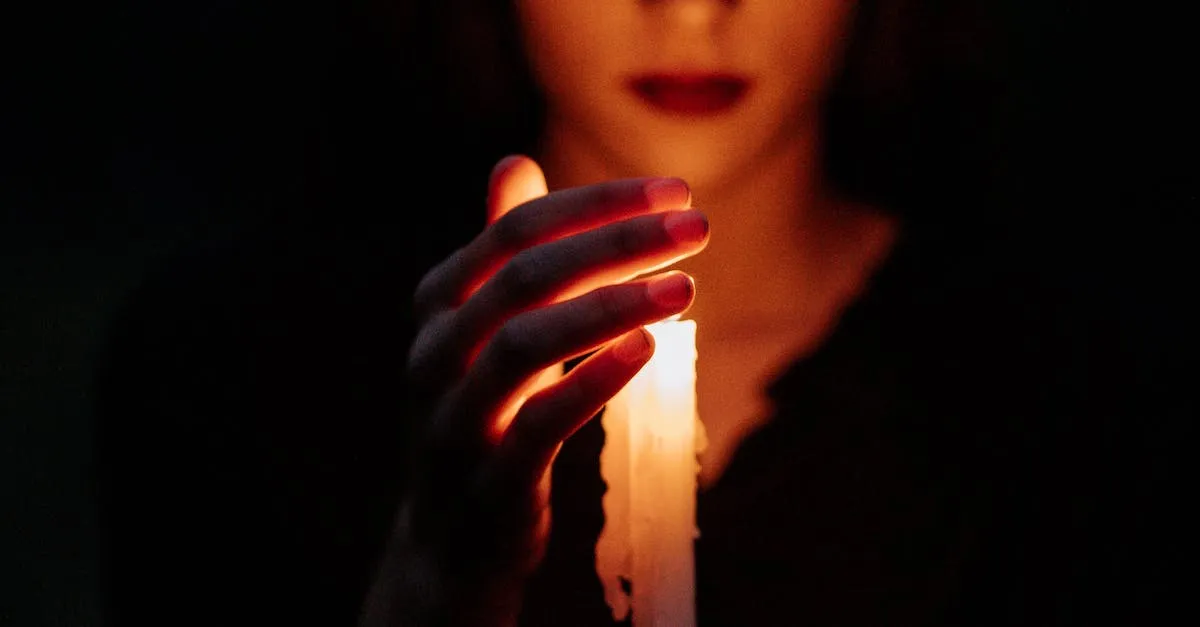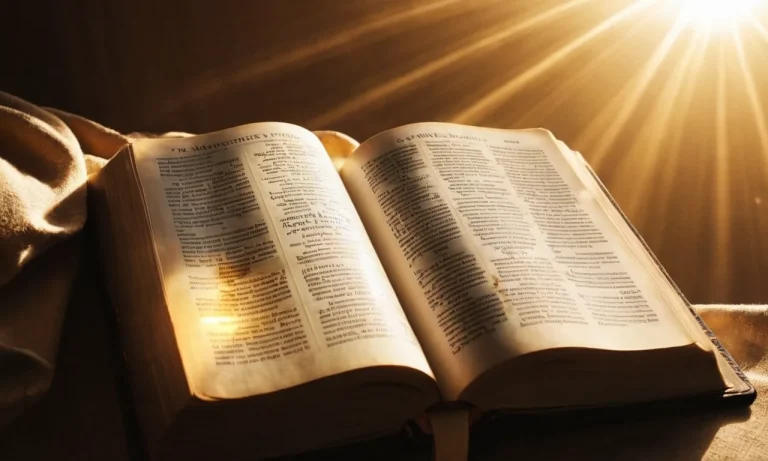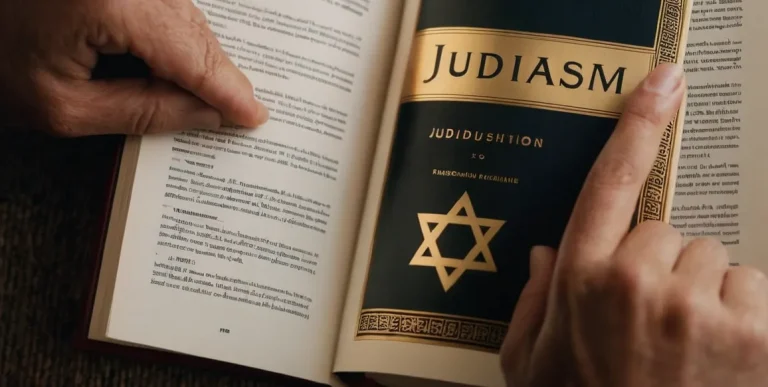Can You Be A Christian Witch? Examining The Controversial Question
The question of whether witchcraft and Christianity can coexist has long been controversial. In recent years, some have claimed it’s possible to practice both Christian faith and witchcraft simultaneously.
But most mainstream Christian perspectives see an inherent conflict between these two spiritual paths. If you want an in-depth examination of this issue, you’re in the right place.
If you’re short on time, here’s a quick answer: Most traditional Christian authorities argue that the magical practices and spiritual beliefs of witchcraft are incompatible with Christian teachings and therefore prohibit Christians from identifying as witches.
In this comprehensive 3000-word guide, we will delve into the key points of disagreement, perspectives from various denominations, potential areas of overlap, and what practitioners say about blending these two traditions.
Understanding Christian and Witchcraft Beliefs
Christian Foundations: Bible, Sin, Salvation
Christianity is a monotheistic religion that believes in the teachings of Jesus Christ as found in the Bible. The Bible serves as the foundation of Christian beliefs and provides guidance on how to live a righteous life.
Christians believe in the concept of sin, which is the disobedience to God’s laws, and the need for salvation through faith in Jesus. Salvation is seen as the pathway to eternal life in heaven.
For Christians, the practice of witchcraft is generally viewed as incompatible with their beliefs. This is because the Bible explicitly prohibits engaging in sorcery, divination, and witchcraft. Christians interpret these prohibitions as a warning against any involvement in practices that seek power or guidance from supernatural sources other than God.
It’s important to note that there are different denominations within Christianity, and individual beliefs may vary. Some Christians may be more open to exploring alternative spiritual practices, including witchcraft, while others adhere strictly to the traditional teachings.
Witchcraft Basics: Magic, Spirits, Energies
Witchcraft, on the other hand, is a broad term that encompasses various spiritual practices and beliefs. It is often associated with the use of magic, spells, and rituals to bring about desired outcomes.
Witches may believe in the existence of spirits, energies, and the interconnectedness of all things.
Witchcraft is not a monolithic practice, and different traditions and cultures have their own unique beliefs and rituals. Some witches may follow Wicca, a modern pagan religion that incorporates witchcraft and nature worship.
Others may practice traditional witchcraft, which is deeply rooted in folklore and ancestral traditions.
While witchcraft can be seen as a spiritual path or a way of connecting with the natural world, it is important to recognize that not all witches identify as religious. Some may view witchcraft as a personal practice or a form of self-expression.
Key Differences and Potential Conflicts
The key differences between Christianity and witchcraft lie in their theological foundations and practices. Christianity places its trust in the teachings of Jesus Christ and the authority of the Bible, while witchcraft draws from diverse belief systems and may not have a central authority.
Christianity emphasizes faith in God, repentance for sins, and the pursuit of holiness. Witchcraft, on the other hand, focuses on personal power, intuitive wisdom, and the manipulation of energies.
Due to these fundamental differences, conflicts can arise when attempting to reconcile Christian and witchcraft beliefs. Some Christians may view witchcraft as incompatible with their faith and may see it as a form of idolatry or a violation of biblical teachings.
On the other hand, some witches may find it difficult to integrate Christian theology into their spiritual practices.
It’s important to approach this topic with an open mind and respect for different perspectives. Ultimately, the question of whether one can be a Christian witch is a deeply personal one. It requires individuals to carefully examine their beliefs, seek guidance from trusted spiritual leaders, and engage in thoughtful reflection on how these two belief systems can coexist, if at all.
Prohibitions Against Magic and Witchcraft in Christian Teachings
When it comes to the question of whether one can be a Christian witch, the issue is highly controversial due to the prohibitions against magic and witchcraft found in Christian teachings. Throughout history, various biblical verses, church positions, and condemnations from Christian leaders have shaped the belief that practicing witchcraft goes against the core principles of Christianity.
Biblical Verses Against Magic
The Bible contains several verses that explicitly condemn the practice of magic and witchcraft. One such verse is found in the book of Exodus, where it states, “You shall not permit a sorceress to live” (Exodus 22:18).
This verse, along with others like it, has been interpreted by many Christians as a clear prohibition against engaging in any form of witchcraft or magic.
Another verse that highlights the Christian stance against magic is found in the New Testament, specifically in the book of Galatians. In Galatians 5:19-21, it lists “witchcraft” as one of the acts of the flesh, stating that those who practice such things will not inherit the kingdom of God.
Church Positions Through History
The early Christian church took a strong stance against magic and witchcraft, viewing it as incompatible with the teachings of Christ. The Council of Ancyra in 314 AD declared that anyone involved in magic should be excommunicated from the church.
Similarly, the Council of Carthage in 398 AD reiterated this stance, stating that anyone practicing magic should be denied access to the sacraments.
Throughout the centuries, various Christian theologians and leaders have reinforced this position. St. Augustine, one of the most influential theologians in the history of Christianity, wrote extensively against the practice of magic and witchcraft.
His writings have had a profound impact on Christian thought, shaping the perception of witchcraft as a sinful and forbidden practice.
Modern Condemnations from Christian Leaders
In recent times, Christian leaders continue to condemn the practice of witchcraft. Many view it as a form of idolatry and believe that it opens doors to demonic influence. Prominent Christian figures, such as Billy Graham and Pope Francis, have spoken out against witchcraft, emphasizing the need for Christians to stay away from such practices.
It is important to note that these prohibitions against magic and witchcraft are deeply rooted in the theological and doctrinal beliefs of Christianity. They reflect the understanding that witchcraft involves seeking power and knowledge apart from God, which goes against the principles of faith and trust in a higher power.
For more information on the Christian perspective on witchcraft, you can visit www.christianity.com which offers a comprehensive analysis of the subject.
Arguments from Those Who Identify as Both Christian and Witch
Seeking Empowerment and Deeper Spirituality
For some individuals, the practice of witchcraft offers a sense of empowerment and a deeper connection to spirituality. They argue that incorporating witchcraft into their Christian faith allows them to tap into ancient wisdom and mystical practices that can enhance their relationship with God.
By embracing elements such as spellwork, divination, and ritual, these individuals believe they can access a more profound understanding of their faith and its teachings. They see witchcraft as a tool to explore their own spirituality and strengthen their connection with the divine.
Adding Practices Without Rejecting Christ
Others who identify as Christian witches argue that they can incorporate witchcraft practices without rejecting their Christian beliefs. They maintain that witchcraft is not inherently incompatible with Christianity and that they can still follow the teachings of Christ while engaging in magical practices.
These individuals often emphasize the importance of intention, claiming that their spells and rituals are performed with the intention of aligning themselves with God’s will. They see their practices as a way to enhance their relationship with Christ and deepen their understanding of the Bible.
Focusing on Healing and Nature-Based Aspects
One of the main arguments made by those who identify as Christian witches is the focus on healing and nature-based aspects of witchcraft. They assert that the use of herbs, crystals, and energy work can be seen as complementary to Christian teachings on healing, compassion, and stewardship of the Earth.
These individuals often draw from biblical references to the healing properties of plants and the importance of caring for the environment. They believe that by incorporating these nature-based practices into their faith, they can experience a more holistic and balanced spirituality.
Questioning Church Authority and Literalism
Some individuals who identify as Christian witches also express a dissatisfaction with certain aspects of traditional church authority and literal interpretations of religious texts. They argue that their exploration of witchcraft allows them to question and challenge rigid religious structures and dogma.
By incorporating elements of witchcraft into their faith, they can embrace a more personal and experiential spirituality. These individuals often argue that their practices are not meant to replace or undermine traditional Christianity, but rather to supplement and expand upon it.
Perspectives from Major Christian Denominations
Catholic Opposition to Non-Christian Spiritualities
Within the Catholic Church, there is a strong opposition to the practice of witchcraft or any form of non-Christian spiritualities. The Catechism of the Catholic Church states that all forms of divination, including magic, are to be rejected as they “contradict the honor, respect, and loving fear that we owe to God alone” (CCC 2116).
The Church teaches that seeking spiritual guidance or power from sources outside of God is not only unnecessary but also potentially dangerous.
In line with this teaching, Catholic leaders have consistently spoken out against the idea of being a Christian witch. They argue that it is incompatible with the core beliefs and teachings of Christianity.
They emphasize that Christianity calls for complete devotion to God and reliance on His grace, rather than seeking supernatural powers through magical practices.
Orthodox Skepticism of Magical Practices
Similarly, within the Orthodox Christian tradition, there is a general skepticism towards magical practices. While there is no explicit prohibition against being a Christian witch, Orthodox Christians tend to view magic as a form of superstition that distracts believers from their relationship with God.
Orthodox theologians emphasize the importance of prayer, fasting, and the sacraments as the primary means of spiritual growth and connection with God. They caution against seeking spiritual power or guidance through magical practices, as it can lead to a distortion of one’s faith and a reliance on human abilities rather than divine grace.
Protestant Rejection of Anything Occultic
In many Protestant denominations, there is a strong rejection of anything occultic, including witchcraft. Protestant Christians generally believe that the Bible explicitly condemns practices associated with witchcraft and sorcery.
The biblical passages most frequently cited include Exodus 22:18, which states, “You shall not permit a sorceress to live,” and Galatians 5:19-20, which lists witchcraft as one of the works of the flesh.
These passages, along with others, form the basis for the belief that engaging in witchcraft or magical practices is incompatible with Christianity.
Liberal Approaches More Open to Blending
On the other hand, some more liberal Christian denominations take a more open and inclusive approach towards blending different spiritual practices. These denominations may be more accepting of individuals who identify as Christian witches, as long as their practices align with the core values and teachings of Christianity.
Liberal Christians often emphasize the importance of personal spiritual exploration and the idea that different spiritual paths can lead to a deeper understanding of God. They may argue that being a Christian witch is a personal choice and that as long as it enhances one’s relationship with God and does not contradict fundamental Christian principles, it can be accepted within the broader Christian community.
It is important to note that the perspectives within each Christian denomination can vary, and individual believers may hold different opinions on the matter. As with any controversial topic, it is crucial to engage in respectful dialogue and seek guidance from trusted religious leaders when exploring questions of faith and spirituality.
Considerations and Alternatives
Examining Motivations and Goals
Before considering the controversial question of being a Christian witch, it is important to examine one’s motivations and goals. It is crucial to understand that Christianity and witchcraft are two distinct belief systems with different principles and practices.
While it is possible for individuals to be drawn to aspects of both, it is essential to reflect on why this combination is appealing and what one hopes to achieve by merging the two.
Risks of Appropriating Without Understanding
One must be cautious when exploring the idea of being a Christian witch, as it can be seen as appropriating from both Christian and pagan traditions without fully understanding their significance. Appropriation can be disrespectful and can dilute the authenticity and depth of both belief systems.
It is important to educate oneself about both Christianity and witchcraft to avoid misrepresentations or misunderstandings.
Christian Mysticism as an Alternative Path
For those who are drawn to both Christianity and mysticism, an alternative path to consider is Christian mysticism. Christian mysticism is a tradition within Christianity that emphasizes the direct experience of the divine and the pursuit of a deeper spiritual connection.
It allows individuals to explore mystical practices, such as contemplative prayer, meditation, and the pursuit of spiritual union with God, within the framework of their Christian faith.
Connecting Through Prayer and Service
Another alternative for individuals seeking to connect both their Christian faith and their interest in witchcraft is to focus on prayer and service. Regardless of one’s beliefs about witchcraft, Christianity emphasizes the importance of prayer and serving others.
By focusing on these aspects, individuals can find a way to integrate their spiritual practices without compromising the integrity of either belief system.
It is important to remember that spirituality is a deeply personal journey, and individuals should follow their own path guided by their convictions and beliefs. Before making any decisions, it is recommended to consult with spiritual leaders, mentors, or trusted individuals who can provide guidance and support.
Conclusion
The mainstream Christian view is that witchcraft and Christianity are fundamentally at odds. However, some practitioners argue aspects can be blended if focused on positive goals and kept within a Christ-centered life.
This complex issue requires extensive discernment for those feeling drawn in conflicting spiritual directions.








